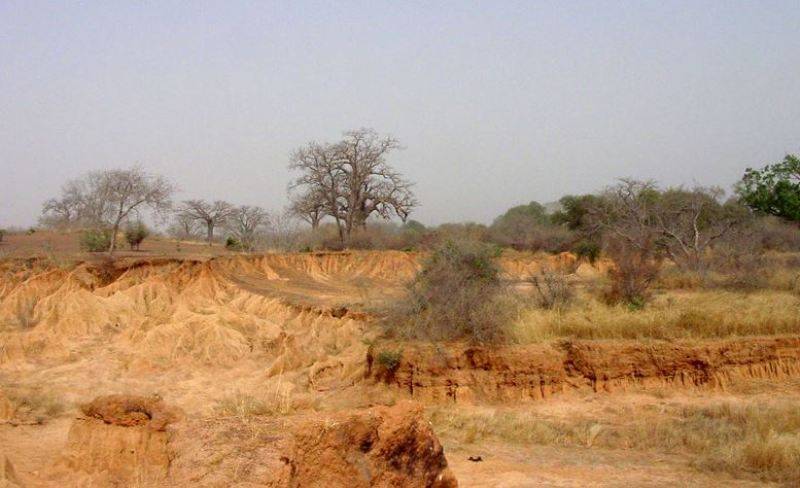
On 9 September at a High-Level Breakfast meeting in New Delhi, India, partners of the African-led Great Green Wall Initiative agreed to develop a visionary roadmap, a decade after its launch, with bold targets to restore 100 million hectares of land and create 10 million green jobs by 2030 across the Sahel.
Co-chaired by H.E. Ms. Amina J. Mohammed, United Nations Deputy Secretary-General and H.E. Josefa Leonel Correia Sacko, African Union Commissioner for Rural Economy and Agriculture, the event was held on the margins of the Fourteenth Session of the Conference of the Parties (COP14) of the United Nations Convention to Combat Desertification (UNCCD).
During the meeting – facilitated by the UNCCD Secretariat, in collaboration with the Pan-African Agency of the Great Green Wall (PAGGW), represented by H.E Marieme Bekaye, Minister of Environment and Sustainable Development of Mauritania and President of the Council of Ministers – partners commended current progress by Great Green Wall member states, supported by the AU, PAGGW and international community. Raising concerns that 65% of land on the African continent is still degraded, partners called for the initiatives swift upscaling and acceleration, to further advance social cohesion, climate action (both adaptation and mitigation) and economic development via a transformative ecological corridor that supports millions of lives.
During the meeting, partners agreed that the roadmap would focus firmly on the Initiative’s contribution to 15 of the 17 SDGs. By 2030, the initiative aims to ensure:
➢ Large-scale landscape restoration – with a target to restore 100 million hectares of degraded land to transform the lives of those living on the frontline of climate change and desertification.
➢ Creation of 10 million green jobs including through sustainable value chains and connecting local producers to lucrative global markets.
➢ Promotion of clean energy, powering communities along the Wall to a brighter future and creating local economies that ensure land remains productive.

Participants affirmed that in order to fulfill the ambitions of the Great Green Wall Initiative, and support the implementation of the roadmap, a more innovative approach and robust coordination mechanism are required for real transformation and resource mobilization, including to leverage the assets of the region and the opportunities offered by the youth and women as the main drivers of change. A joint commitment was made to mobilize technical and financial resources, from the public and private sectors through win-win partnerships, recognizing that private sector investment is vital in creating green jobs and wealth along the Wall and ultimately achieving the 2030 vision.
Participants exchanged views on a myriad of opportunities the region offers, with an emphasis on sustainable value chains, renewable energy and rural entrepreneurship, and stressed the importance of changing the narrative to underscore the Sahel as a “land of opportunities”.
In the wake of the recent IPCC ‘Climate Change and Land’ Report – which highlights land rehabilitation as one of the single most impactful ways to tackle the climate emergency – partners highlighted the need to capatilize on the growing political momentum behind initiatives such as the Great Green Wall. It was noted that the upcoming UN Secretary General’s Climate Action Summit on 23 September, would be crucial in further galvanizing support, including within the framework of the nature-based solution track, to advance affirmative action for the Great Green Wall by 2030 and inspire a global restoration movement.
Participants in attendance included the African Union Commission, Pan African Agency of the Great Green Wall, Government Ministers – including those from countries participating in the Pan African Agency for the Great Green Wall Initiative; The Prime Minister of Saint Vincent and the Grenadines, Heads of COP Delegation from UNCCD parties, the UN system, IGOs, regional actors; private sector stakeholders; civil society organisations, Great Green Wall Champions - Baaba Maal, Ricky Kej, and Hindou Oumarou Ibrahim.
Source - UNCCD COP14















